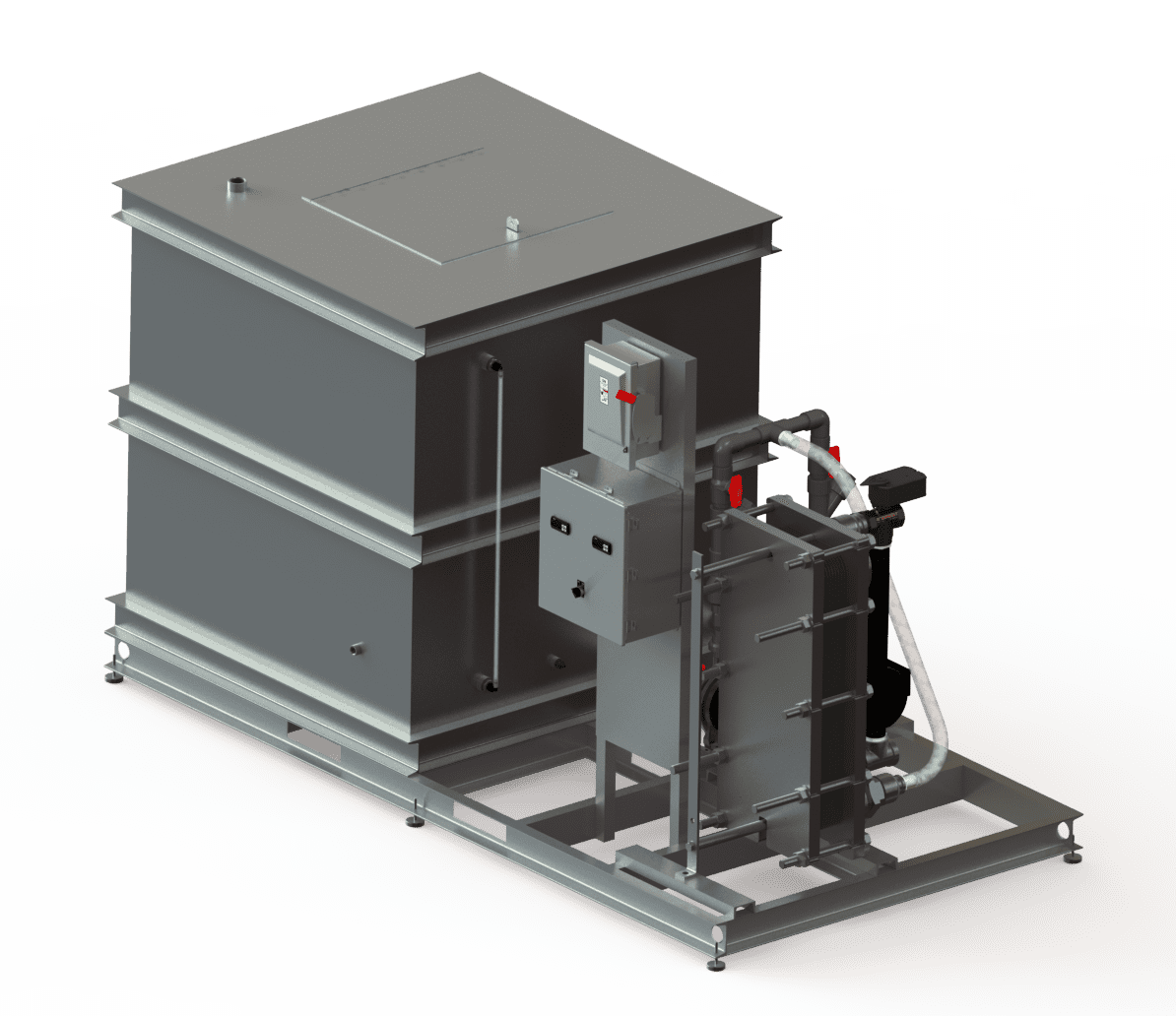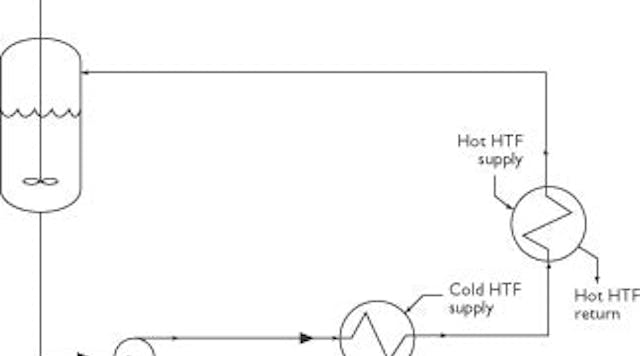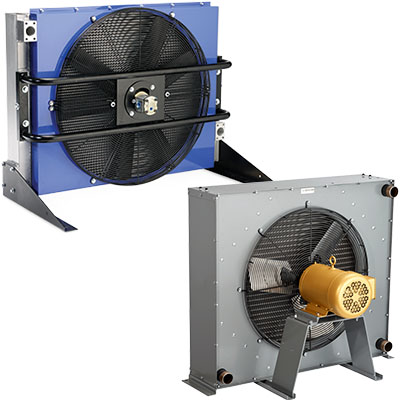Benefits of Choosing DVS Heat Transfer Systems for Compact Heat Exchanger Designs
Wiki Article
The Duty of Heat Transfer Systems in Sustainable Energy Solutions for the Future
Heat transfer systems are essential in the pursuit for lasting power solutions. They enhance thermal power administration, boosting the efficiency of eco-friendly modern technologies. By utilizing systems like radiation, transmission, and convection, these systems lessen power losses. Their function in solar thermal and geothermal applications is especially considerable. As advancements arise, the potential for more innovations elevates vital questions about future power techniques. What developments will form the landscape of sustainable energy?Understanding Heat Transfer Systems

The Relevance of Thermal Energy Monitoring
Effective thermal energy monitoring is crucial for making best use of energy performance and reducing waste in numerous systems. By managing temperature and maximizing Heat transfer processes, organizations can substantially reduce energy intake and functional costs. Efficient monitoring entails the application of advanced innovations and methods that keep track of and control thermal problems within systems, making sure that energy sources are utilized effectively. In enhancement, correct thermal power management adds to lowering greenhouse gas exhausts, straightening with global sustainability goals. It also enhances system dependability and performance, causing enhanced item high quality and longer equipment life expectancy. Eventually, focusing on thermal energy monitoring is a crucial action in the direction of creating extra sustainable power options and cultivating a liable approach to energy usage in commercial and residential contexts.Applications of Heat Transfer in Renewable Resource
While different eco-friendly power resources assure sustainability, the efficient application of Heat transfer plays a crucial function in their performance. In wind energy systems, Heat transfer is made use of for wind turbine element air conditioning, boosting performance and longevity. Geothermal power depends on efficient Heat exchange in between the planet's subsurface and the fluid flowing in the system, taking full advantage of energy extraction. Biomass energy procedures also gain from Heat transfer, as it helps in converting natural materials right into functional fuel via pyrolysis and gasification. Furthermore, in hydropower, preserving perfect temperature levels in reservoirs can boost energy result. Each of these applications demonstrates the critical importance of Heat transfer systems in enhancing eco-friendly energy modern technologies, ultimately adding to a much more lasting energy future.Enhancing Solar Thermal Power Performance
As solar thermal power systems proceed to evolve, enhancing their efficiency has become important for making best use of power output. Advances in Heat transfer modern technologies, such as enhanced thermal storage materials and ingenious Heat exchangers, play a considerable duty in improving efficiency. By using innovative products that have exceptional thermal conductivity, systems can move and capture Heat a lot more effectively. Furthermore, incorporating radar that comply with the sunlight's course guarantees that collection agencies obtain suitable solar exposure throughout the day. Utilizing nanotechnology in solar absorbers can additionally raise energy absorption prices. Integrating automated control systems assists control temperature levels and take care of power distribution efficiently, leading to lowered losses and boosted total system efficiency. These enhancements lead the means for even more lasting solar thermal energy services in the future.Geothermal Heating: A Sustainable Solution
Geothermal home heating provides a sensible option for lasting power, supplying considerable ecological benefits with lowered greenhouse gas emissions. Its performance and cost-effectiveness make it an attractive alternative to traditional heating unit. Challenges associated to implementation should be resolved to maximize its potential influence.Environmental Advantages of Geothermal
Although conventional home heating methods contribute considerably to greenhouse gas discharges, geothermal home heating provides an engaging alternative that reduces environmental effect. By harnessing the Earth's interior Heat, geothermal systems utilize a renewable resource resource, substantially decreasing reliance on fossil gas. This approach generates minimal carbon discharges, making it a cleaner choice for household and commercial home heating. In addition, geothermal systems promote power efficiency, as they require less power contrasted to conventional furnace. DVS Heat Transfer Systems. The usage of geothermal power likewise assists in reducing air contamination, boosting neighborhood air quality and public wellness. As a lasting solution, geothermal home heating sustains environment modification mitigation initiatives, positioning itself as a necessary part in the change towards a greener futureEffectiveness and Cost-Effectiveness
How does geothermal heating measure up in terms of efficiency and cost-effectiveness compared to standard heating systems? Geothermal home heating shows remarkable performance, usually attaining a coefficient of efficiency (POLICE OFFICER) of 3 to 5, implying it produces 3 to 5 systems of Heat for every system of electrical energy taken in. This efficiency translates right into reduced operating prices, especially in regions with steady geothermal sources. First installation prices can be more than traditional systems; nonetheless, lasting savings on energy costs and reduced upkeep expenditures can counter these ahead of time financial investments. In addition, several governments incentivize geothermal systems through rebates and tax obligation credit histories, enhancing their cost-effectiveness. Overall, geothermal home heating arises as a economically sensible and lasting option to even more standard heating remedies.Execution Challenges and Solutions
Countless difficulties can hinder the extensive implementation of geothermal furnace, regardless of their clear advantages as a lasting power remedy. High preliminary installment costs frequently prevent financiers and homeowners, making funding a substantial obstacle. Additionally, the geographical restrictions of ideal geothermal sites limit accessibility in particular areas. Local guidelines and allowing procedures can also make complex project development, causing hold-ups. Moreover, public awareness and understanding of geothermal systems stay reduced, hindering approval. To address these obstacles, targeted education and learning campaigns can improve public expertise, while government incentives could ease economic worries. Teaming up with neighborhood authorities to streamline regulations may facilitate smoother project approvals, inevitably promoting the fostering of geothermal home heating as a feasible, sustainable energy option.Technologies in Heat Transfer Technologies
Advancements in Heat transfer technologies play an essential duty in improving energy efficiency and sustainability. Advanced Heat exchangers and stage modification materials are at the forefront of these developments, providing substantial enhancements in thermal administration. These innovations not only optimize power use however also add to reducing ecological effect in various applications.Advanced Heat Exchangers
Advanced Heat exchangers play a vital role in boosting energy performance across different applications in lasting energy options. These devices assist in the transfer of Heat between 2 or more liquids, considerably reducing power usage in procedures such as industrial home heating, cooling, and power generation. Innovations in products and layout, such as using nanofluids and small configurations, have actually resulted in boosted thermal performance and minimized size demands. Additionally, get more improvements in digital monitoring and control systems enable enhanced procedure, additional boosting performance. By minimizing waste Heat and making the most of power recovery, advanced Heat exchangers contribute to reduce carbon impacts and support the shift towards environmentally friendly technologies. Their proceeded growth is important for accomplishing international energy sustainability goals.
Stage Change Materials
The combination of stage adjustment materials (PCMs) into Heat transfer technologies represents a substantial development in power monitoring and performance. PCMs take in and launch thermal power throughout their stage adjustments, enabling efficient temperature policy in structure products and power systems. By storing excess Heat during optimal durations and releasing it when need rises, PCMs contribute to pack changing and energy conservation - DVS Heat Transfer Systems. This ability improves the efficiency of renewable resource systems, specifically in solar article source thermal applications. Additionally, PCMs can improve the thermal comfort of indoor environments, decreasing reliance on conventional heating and cooling down techniques. As technologies in PCM solutions continue to arise, their role in sustainable power remedies is poised to expand, offering encouraging methods for future research and application
Future Prospects for Heat Transfer in Sustainable Energy
As the demand for sustainable energy options remains to climb, the duty of Heat transfer systems is ending up being significantly crucial fit future technologies. Developments in styles and materials are anticipated to enhance efficiency in Heat transfer, decreasing energy losses in different applications. The combination of innovative thermal storage space systems, such as phase change materials and thermochemical storage, will enable better management of power sources. Research study into nanofluids and biomimetic Heat exchangers may additionally enhance thermal performance. The fostering of clever modern technologies will certainly enable for real-time tracking and adaptive control of Heat transfer processes. These developments are positioned to considerably add to the general effectiveness and sustainability of power systems, paving the means for an extra energy-efficient future.Often Asked Questions
Just How Can Individuals Implement Heat Transfer Equipment in your home?

People can execute Heat transfer systems in the house by installing energy-efficient devices, using radiant heat, and maximizing insulation. These procedures enhance energy performance, minimize prices, and promote lasting methods in residential settings.

What Are the Costs Connected With Setting Up Heat Transfer Systems?
The expenses associated with mounting Heat transfer systems differ commonly, usually incorporating devices, setup labor, and upkeep. Aspects such as system type, home size, and local policies considerably affect the total expenditure involved.Are There Federal Government Incentives for Heat Transfer System Installations?
Government incentives for Heat transfer system installations differ by region and can consist of tax gives, refunds, and credit histories. These economic benefits aim to motivate adoption, inevitably promoting power effectiveness and decreasing environmental effect within communities.Just How Do Heat Transfer Solutions Effect Energy Costs?
Heat transfer systems notably affect power bills by optimizing power effectiveness. By improving the transfer of Heat, these systems reduce power usage, causing lower utility prices and producing an extra sustainable strategy to energy management.What Maintenance Is Needed for Heat Transfer Solutions?
Upkeep for Heat transfer systems includes normal examinations, cleaning of elements, examining fluid levels, ensuring appropriate insulation, and replacing used components. These jobs help keep performance, prevent breakdowns, and extend the view it now system's functional lifespan.These systems help with the activity of thermal power from one medium to an additional, enabling the transfer of Heat for cooling, heating, or energy generation functions. Geothermal power depends on reliable Heat exchange in between the planet's subsurface and the fluid flowing in the system, taking full advantage of energy extraction. In addition, geothermal systems advertise energy effectiveness, as they call for much less power contrasted to standard home heating systems. Advanced Heat exchangers play an essential function in enhancing energy performance across various applications in lasting energy remedies. Heat transfer systems notably influence power costs by enhancing power effectiveness.
Report this wiki page